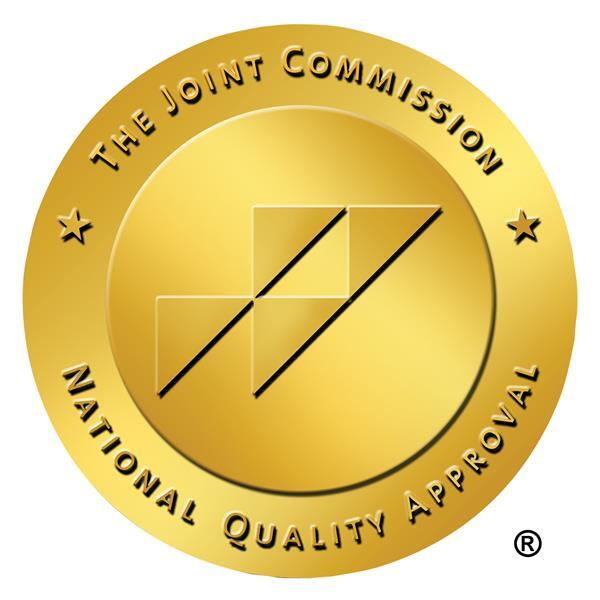Breaking the Chains and Empowering Demerol Dependency Recovery
Introduction
The allure of Demerol, a potent opioid analgesic, has ensnared countless people in the grips of dependency and addiction. As the complexities of this crisis unfold, Mind Body Optimization (MBO) offers an integrative outpatient approach to Demerol dependency recovery that empowers sustainable healing.

Demerol Addiction Statistics
Demerol Dependency Recovery: Understanding Demerol Addiction
Physical Dependence
- Nausea and vomiting
- Abdominal cramps and diarrhea
- Muscle aches and pains
- Restlessness and insomnia
- Sweating and chills
- Runny nose and watery eyes
- Elevated heart rate and blood pressure
Psychological Dependence
- Doctor shopping to get multiple prescriptions
- Forging prescriptions or stealing Demerol
- Purchasing Demerol illegally on the street
- Neglecting responsibilities to get and use Demerol
- Continuing to use Demerol despite harm to relationships, work, or health
Signs and Symptoms of Demerol Dependency
- Needing higher doses to achieve the desired effects
- Withdrawal symptoms when Demerol use is reduced or stopped
- Preoccupation with getting and using Demerol
- Neglecting responsibilities and relationships in favor of Demerol use
- Continued use despite negative consequences
- Unsuccessful attempts to cut down or stop using Demerol
- Mood swings, irritability, and anxiety when Demerol is unavailable
- Changes in sleep patterns and appetite
- Engaging in risky behaviors to get Demerol, such as stealing or doctor shopping
If you or someone you know is exhibiting these signs and symptoms, it’s essential to seek professional help. Demerol dependency is a serious condition. It can have devastating consequences if left untreated. But, with proper support and evidence-based treatment, recovery is possible.
We’re Here to Help You Pave a Path Worth Following
Comprehensive Assessment
- Thorough medical and psychiatric history evaluations
- Screening for co-occurring mental health disorders such as depression, anxiety, or trauma
- Exploration of social and environmental factors, including family dynamics, relationships, and stressors
- In-depth evaluation of substance use history and patterns, including the severity of Demerol dependency
With this information, our team better understands each client’s unique challenges and strengths. This sets the stage for personalized, evidence-based treatment planning.
Personalized Treatment Planning for Demerol Dependency Recovery
- Licensed Therapists
- Psychiatrists
- Psychiatric Mental Health Nurse Practitioners
- Nutritionists (Coming Soon)
Drawing from modalities such as cognitive-behavioral therapy (CBT), dialectical behavior therapy (DBT), and motivational interviewing (MI), the MBO team develops targeted interventions that address the root causes of Demerol dependency while promoting wellness.
By considering the interplay of biological, psychological, and environmental influences, MBO crafts individualized treatment plans that align with each client’s specific needs and goals. This client-centric approach empowers people to take an active role in their wellness journey.
Integrated Care for Co-Occurring Disorders
Recognizing the frequent co-occurrence of substance use disorders (SUD) and mental health conditions, MBO’s comprehensive assessment process identifies and addresses any co-occurring disorders that may be contributing to or worsening Demerol dependency.
The team’s expertise in dual diagnosis treatment ensures that clients receive integrated care, addressing both substance use and mental health concerns at the same time. This is done through evidence-based modalities such as CBT, DBT, and trauma-focused therapies.
By adopting a whole-person approach that considers the interplay of physical, psychological, and social factors, Mind Body Optimization empowers people to embark on a transformative journey toward sustainable healing and well-being, breaking free from the chains of Demerol dependency.
Treatments Offered for Demerol Dependency Recovery at MBO
Medical Detoxification and Stabilization in Demerol Dependency Recovery
Cognitive-Behavioral Therapy (CBT) in Demerol Dependency Recovery
CBT serves as a cornerstone of MBO’s approach to Demerol dependency recovery treatment. CBT aims to identify and change negative thoughts and behaviors linked to substance abuse. This empowers people to develop healthier coping mechanisms.7
Through individual therapy sessions, clients learn to:
- Recognize triggers
- Challenge distorted thinking
- Build problem-solving skills
Psychoeducation in Demerol Dependency Recovery
- The nature of Demerol dependency
- Its effects on the mind and body
- Strategies for maintaining long-term well-being
Mindfulness and Stress Management in Demerol Dependency Recovery
Stress Management
- Relaxation techniques
- Promoting healthy lifestyle habits
- Encouraging regular self-care
Family Therapy and Support Systems in Demerol Dependency Recovery
Demerol dependency affects both the individual and their relationships and family dynamics. MBO recognizes the crucial role of support systems in recovery. It integrates family therapy into its treatment.
Family Sessions
- Demerol dependency
- Its impact on the family unit
- How they can best support their recovering family member
Support Systems and Community Resources
Relapse Prevention: A Proactive Approach to Demerol Dependency Recovery
Relapse prevention is a cornerstone of our treatment philosophy. It’s based on the idea that recovery is a journey that needs proactive strategies and unwavering commitment.
Through individual counseling and group workshops, our experienced clinicians work closely with clients to identify personal triggers, high-risk situations, and potential obstacles that may arise during the recovery process.
Personalized Relapse Prevention Strategies
At MBO, we believe that each person’s path to recovery is unique. Thus, prevention strategies must be tailored to address their needs and circumstances.
Our team works with clients to make personalized relapse prevention plans. The plans include evidence-based techniques and coping mechanisms.
Strategies may include:
- Cognitive-behavioral techniques to identify and challenge distorted thought patterns that can lead to relapse
- Mindfulness practices to cultivate present-moment awareness and emotional regulation
- Stress management techniques, such as deep breathing exercises and progressive muscle relaxation
- Identifying and building a robust support network of family, friends, and peer support groups
- Developing healthy routines and lifestyle habits that promote well-being
Ongoing Support and Accountability
Comprehensive Aftercare Planning for Demerol Dependency Recovery
Integrative Approach to Aftercare
- Ongoing outpatient therapy or counseling sessions to reinforce the skills and strategies learned during treatment
- Referrals to sober living arrangements or transitional housing, if needed, to provide a supportive and structured environment
- Vocational support and resources to assist with employment or educational pursuits
- Connection to community resources, such as support groups, recreational activities, and social services
- Coordination with medical professionals for any ongoing physical or mental health needs
Empowering Autonomy and Self-Efficacy
Throughout the aftercare planning process, we place a strong emphasis on empowering clients to take an active role in their recovery journey. We believe that fostering a sense of autonomy and self-efficacy is crucial for long-term success.
Our clinicians work collaboratively with clients, encouraging them to:
- Identify their strengths
- Set achievable goals
- Develop a personalized plan that aligns with their values and aspirations

Achieve Demerol Dependency Recovery at MBO
Our Mission
Contact Mind Body Optimization Today
If you or a loved one is struggling with Demerol addiction, know that you’re not alone. Reach out to us today and take the first step toward a brighter, healthier future.
Together, we can break the chains of addiction and embark on a transformative journey of healing and self-discovery.
We can’t wait to help you thrive.
Resources
- https://www.cdc.gov/opioids/data/analysis-resources.html
- https://www.ncbi.nlm.nih.gov/pmc/articles/PMC10037395/
- https://medlineplus.gov/druginfo/meds/a682117.html
- https://www.ncbi.nlm.nih.gov/pmc/articles/PMC3733644/
- https://www.ncbi.nlm.nih.gov/pmc/articles/PMC6747116/
- https://www.sciencedirect.com/topics/neuroscience/drug-seeking-behavior
- https://www.ncbi.nlm.nih.gov/books/NBK470241/
- https://www.ncbi.nlm.nih.gov/pmc/articles/PMC7511255/






